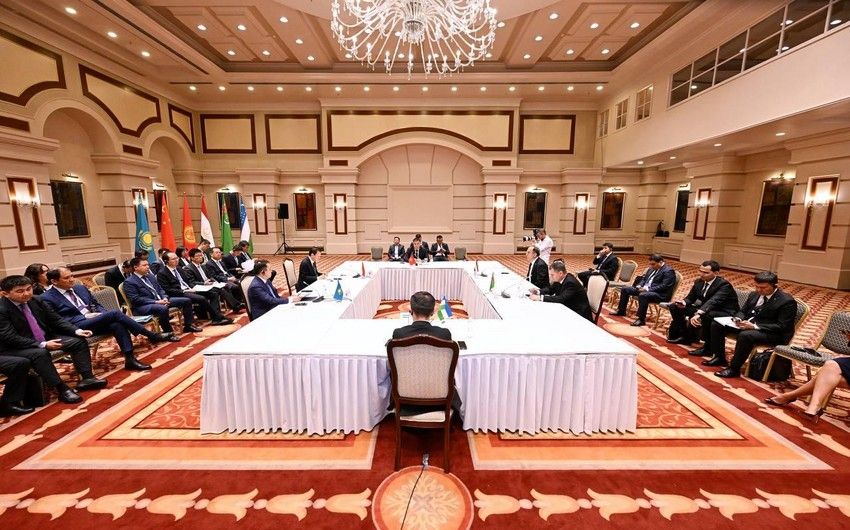Central Asian countries simplify international road transport and transfer exchange of IDB to electronic format

By Alimat Aliyeva
Transport Ministers from Central Asian countries and China have agreed to simplify international road transport procedures by transitioning the exchange of international permit forms (IDBs) to an electronic format — a move that marks a significant step toward the digital integration of the region's transport systems, Azernews reports.
The announcement followed the second meeting of transport department heads, held on May 16 in Astana, Kazakhstan.
During the meeting, ministers discussed the current state of the transport sector both regionally and globally, addressing a broad agenda that included economic, trade, and humanitarian cooperation between China and Central Asia.
“At the six-party meeting, the heads of transport departments emphasized the importance of creating a comprehensive program for multilateral cooperation in the field of transportation between China and Central Asia. The initiative will introduce digital document exchange and real-time cargo tracking capabilities,” the final communiqué stated. “Ministers reaffirmed their commitment to simplifying international road transport and transitioning the exchange of international road permits (IDBs) into a fully digital system.”
The IDB (International Driving Bulletin) is a critical document that allows authorized carriers to perform cross-border freight transportation. Shifting to a digital format aims to cut down administrative delays, enhance transparency, and reduce the risk of document fraud.
Kazakhstan has already implemented electronic IDB exchanges with China and Uzbekistan. According to officials, the system will soon expand to include Kyrgyzstan, Turkmenistan, and Tajikistan — a move expected to significantly accelerate customs and logistics processes across the region.
At the conclusion of the meeting, ministers signed several memoranda of understanding (MoUs), solidifying their cooperation on digitalizing international road transport and enhancing cross-border connectivity.
One of the key long-term goals discussed was the potential integration of blockchain technology to secure and automate logistics data across national borders — an innovation that could set a new standard for transport corridors under China’s Belt and Road Initiative (BRI). Furthermore, ministers agreed on the urgent need to streamline procedures at border checkpoints, particularly for road and rail transport, which are often bottlenecks for regional trade.
Here we are to serve you with news right now. It does not cost much, but worth your attention.
Choose to support open, independent, quality journalism and subscribe on a monthly basis.
By subscribing to our online newspaper, you can have full digital access to all news, analysis, and much more.
You can also follow AzerNEWS on Twitter @AzerNewsAz or Facebook @AzerNewsNewspaper
Thank you!
